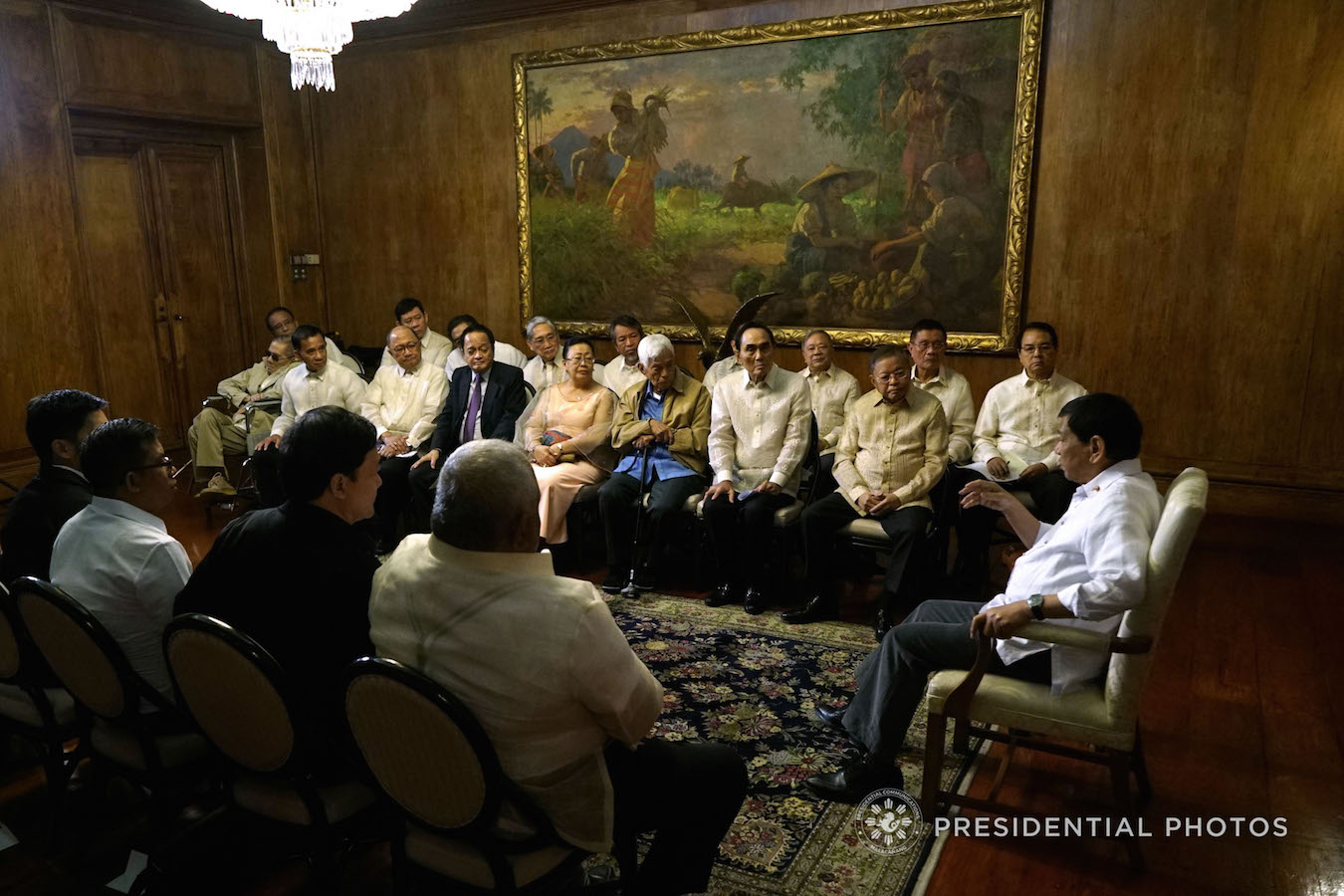News
Con-com sub-committee eyes ‘balanced’ economic liberalization

President Rodrigo Roa Duterte presides over a meeting with the members of the Consultative Meeting at the Malacañan Palace on February 13, 2018. KING RODRIGUEZ/PRESIDENTIAL PHOTO
MANILA — A sub-committee of President Rodrigo R. Duterte’s Consultative Committee (Con-com) to review the 1987 Constitution is eyeing provisions that will create a balanced economic liberalization to improve the inflow of foreign investments while enhancing the growth of domestic enterprises to make them more competitive.
Con-com sub-committee on economic revisions chairperson Arthur Aguilar said that liberalization needs to be balanced with the need to increase competitiveness while protecting domestic interests.
Aguilar said that during their last meeting, the members of the sub-committee agreed that liberalization must be viewed from a holistic perspective that considers several factors that affect the inflow of foreign investments.
These factors include ease of doing business , ownership restrictions, peace and order, infrastructure, tax and other incentives, governance, graft and corruption, labor cost, energy cost among others.
Although the measures are to be finalized yet, Aguilar said the panel that liberalization has to be measured on the basis of what is best for the people in general and should ensure that Filipino enterprises, particularly small and medium scale enterprises (SMEs) don’t get wiped out.
“Small and medium scale businesses, have to have some element of protection otherwise they’d get wiped out,” Aguilar told reporters in an interview.
“When we liberalize that, we were conscious of trying to balance liberalization on one side and the national interest to make sure that it is for the welfare of the people and to balance it out for some sectoral interests of our economy,” he added.
The panel also tacked foreign ownership of land classified into three: Agriculture, industrial-commercial, and residential.
Since nothing is final yet, Aguilar was hopeful that these principles will eventually find their way into constitutional language in some provision.
Aguilar, meanwhile, expressed the importance of economic reforms in the proposed federal form of government.
“You have to have economic reforms if you federalize because you’re now sharing [power and resources]. As you know in federalization, you have exclusive federal powers, you have exclusive regional powers and you have shared powers. In our proposal here, on economic policies, the federal government will just set general standards,” Aguilar said.
Once these policies are made at federal level, everything else will be done in the regional level.
“That’s what federalization is all about, the regions can compete for investors and then the best practices will surface and everyone will rise to a higher level,” he added.





















